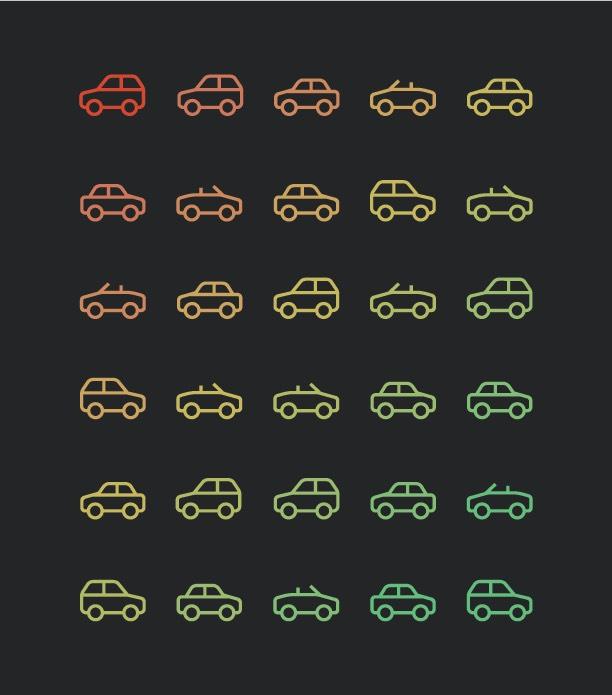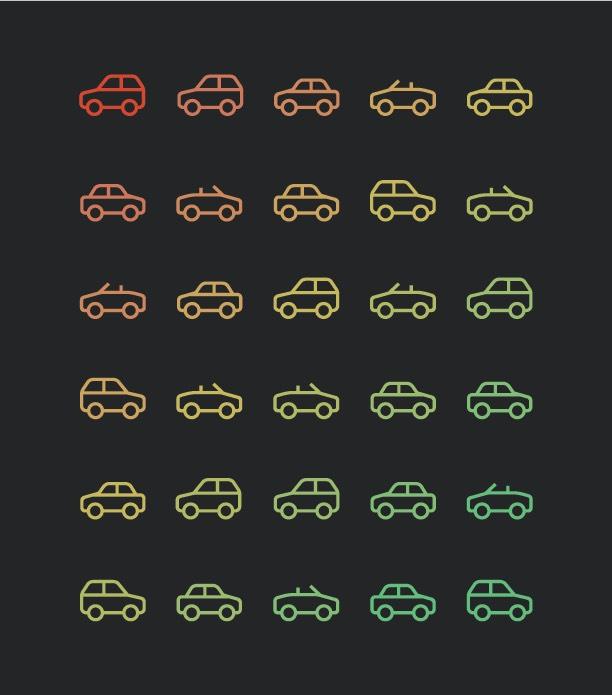Editor’s Note: This story originally appeared in our fifth digital issue.
Biology sophomore Shazma Khan forgot to buy a parking pass this semester. Parking passes sell out quickly, sometimes in only a few days. When Khan went online to purchase a pass, all the good garages were full.
Story by Natalie Heineman
Illustrations by Ryan Hicks
“I usually park on the street, using the pay-to-parks, but sometimes when I’m running late I do park where I’m not supposed to,” Khan says. Each day, she commutes 30 minutes, depending on Austin’s notorious traffic, from her home in Round Rock. When Khan arrives on campus, she is forced to find alternative places to store her car.All 70,000 faculty, staff and students on campus compete for 14,000 parking spots. Students need to find alternatives, but parking lots and garages fill up before sunrise leaving many students without options. In 2013, UT Parking & Transportation Services issued 37,923 citations to unauthorized parked cars.
Bobby Stone, University Parking & Transportation director, says the solution ff students should utilize public transportation, so they don’t have to take their own cars to campus. “Whenever possible consider utilizing the UT Shuttle or Cap Metro mainline to come to campus,” Stone says. “Both services combined cover most of the areas where students live and they are both available to students at no cost to board. Leave fighting Austin traffic to someone else.”
Some students choose to park in businesses or parks near campus and then ride the UT shuttle. This process takes up space in private lots and risks the student’s vehicle being towed or fined. But this is nothing compared to the fine a student receives if they park in a campus lot without a permit. Generally, citations of over $100 are issued, and if a student collects more than four citations, their car can be booted.
For students who do bring their cars to campus, Stone suggests investing in a carpool permit. “You get discounted permit rates, free days of parking in UT garages, and preferred parking locations before 10 a.m.,” Stone says.
Faculty and staff receive priority when it comes time to distribute permits. Parking availability affects student schedules on a daily basis. Civil engineering freshman Jenny Liu says she frequently can’t find parking. “I park in front of the stadium anytime besides Monday through Friday from 7:30 a.m. to 5:45 p.m.,” Liu says. “I have to get up at six in the morning to move my car to Lot 70. Lot 70 doesn’t allow parking from 4 p.m. to 6 a.m., which I found out the hard way by paying a $35 ticket. For a while, I had to move my car twice a day.”
Even when students find parking, they face challenges. Parking on campus is expensive because of the prime location. For a C or C+ permit, which grants the holder the right to park in surface lots in the eastern area of campus, the costs start at $127 and do not guarantee a space.
In 2014, UT Parking & Transportation Services sold 6,652 permits for 554 surface spaces. The department’s logic is that not every student will be on campus at the same time. The way classes are structured, students come and go on an hourly or even daily basis. “People shouldn’t have to go through extra hassle to get where they need to be,” neuroscience freshman Lauren Schneider says.
The cost is even more to park in a garage. Prices for an R or S permit range from $628 to $765 for a one-year pass to a parking garage. Students enter a lottery to obtain these passes, which are in high demand. Winners of the lottery receive a permit, while losers are left with nothing. Even faculty and staff must pay between $155 and $533 for a space in a garage. “Parking is way too expensive,” says Sarah Remelius, journalism and youth and community studies freshman. “I think paid $700 for my permit, which is crazy.”
The only way to resolve this crisis is to increase the amount of parking spaces available. A new garage accompanying the Dell Medical School is being built in the south section of campus. This garage will feature at least 100 spaces and will be open to all students.
However, one garage is not enough to accommodate students with vehicles — unless the university converts some of the flat surface C parking lots into more garages. The benefits far outweigh the costs. “[UT Parking] needs to take more people off the waitlist for Brazos Garage,” Remelius says. “There’s always a lot of extra parking in there, yet they say it’s full and make students park further away. I have to park at Manor Garage behind the stadium which is about a 15-minute walk, and I don’t feel safe walking there, especially at night.”
Ultimately, students unable or unwilling to pay for a campus parking permit must decide between public transportation, illegally parking or skipping class. “This is a safety issue,” says Hadley Holland, human development and family sciences freshman. “It is dangerous for students to have to walk so far from their parking spot to their destination, especially alone. The inconvenience may discourage students from coming to class and events if they can’t find a reasonable place to park their car.”














































